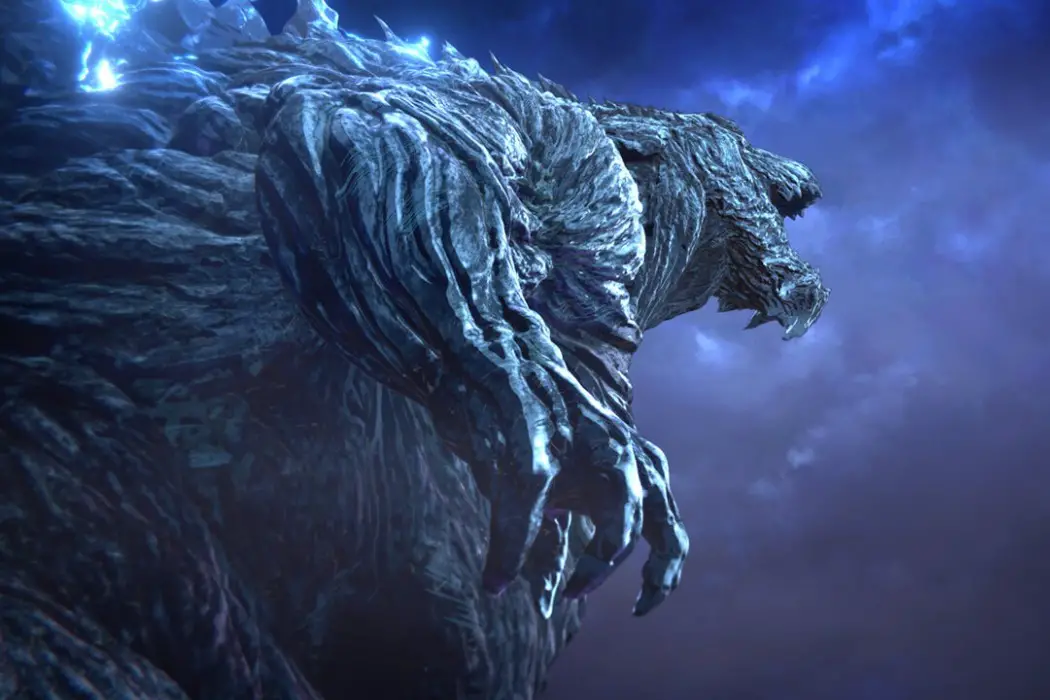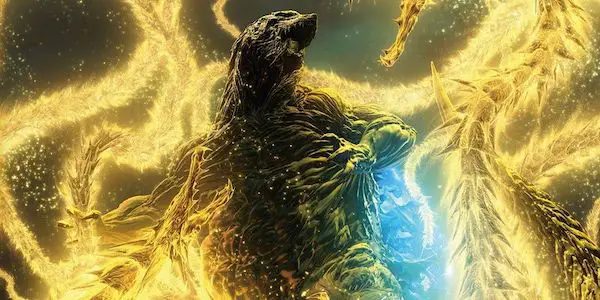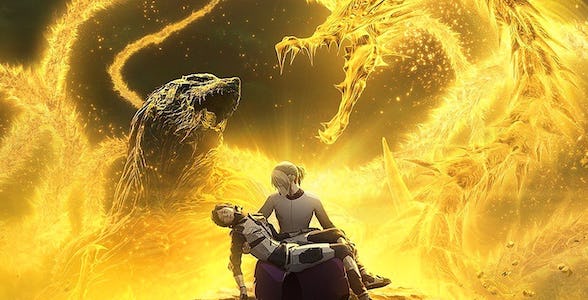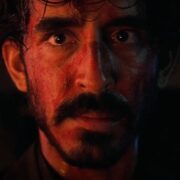GODZILLA: THE PLANET EATER: A Big Monster With A Small Bite

22. Film Critic and Journalist. Lover of Digital and Celluloid
Netflix and Toho’s animated collaboration on Japanese cinematic legend Gojira has arrived at its much anticipated third and final instalment after a somewhat underwhelming trilogy of films. Godzilla: The Planet Eater boasts an astonishingly outrageous vivid and abstract aesthetic in the opening and closing sequences but truly fails to grasp a compelling narrative throughout, with little conviction – an issue that has unfortunately plagued the series from start to finish.
A Promising Start
Directors Hiroyuki Seshita and Kôbun Shizuno, series veterans who have directed all three instalments thus far, continue the ongoing, harrowing tale of what remains of humanity’s last defence against the titular monster Godzilla, led by Haruo Sakaki. Previously, he decided not to kill the beast and stop the age of Mechagodzilla against the wishes of his squadron, retaining his own humanity in the process during the final moments of preceding effort City on the Edge of Battle.
Now, Haruo is left with little to fight for. His team is in pieces and his companion Yuko Tani is left in a comatose state after merging with nanometal technology. Yet Haruo’s biggest test still awaits with the impending arrival of arch-nemesis Ghidorah heading to earth to end the battle once and for all.

Once Ghidorah arrives for the third act “battle” (more on that later) it does so in a sizeable and abstract manner with a sense of gravitas and a much-needed injection of energetic prowess that had been missing, although far from the great heights the anticipation appeared to be building towards. Ultimately lifting a picture that is sadly otherwise an underwhelming bore. The Planet Eater has had two feature-length instalments with over three hours of story to reach a climatic and compelling showdown, only for the short ninety minute running time to retort to eighty minutes of exposition and dialogue intrusive sequences that feel both regurgitated and repetitive.
Each impending sequence prolongs events that are demanding to be exercised and traversed, stagnating the rhythm and pacing to a screeching, withering halt. It almost becomes slightly infuriating to watch the film develop with such bloated arcs and very little resonation nor or atmospheric end in sight, almost prolonging and quite frankly ignoring the long awaited finale of which this picture by definition is built to personify and convey in an entertaining manner.
Style With Little Substance
Character arcs remain unengaging, with little to develop or explore and little impacting significance. Aside from the constant articulated and dense conversations between Metphies and Haruo Sakaki on religion, life and the past, which is far more tedious and numbing than imaginable on screen. You’d be hard pressed to find a character with any weight heavier than a feather. It all feels like fluff that has little place in this specific narrative, which may perhaps have fitted perfectly in the series’ predecessors. Unfortunately, it is conveyed here almost as if prolonging and resisting the urge to satisfy its own fan base and audience.

Continuing the aesthetic trend of the series predecessors, Godzilla: The Planet Eater does boast an outrageously beautiful and radiant animation aesthetic. This is made all the more impactful with the re-design/evolution and animation of Ghidorah which, in simple terms, is stunning to behold. The climax, in particular, looks phenomenal – however, that is unfortunately the tipping point of where the positives stop stacking up and the negatives are brought to the forefront.
The battle itself is excruciatingly dull and develops in a flat uninspiring fashion. The colour and design are terrific, popping with a theatrical sense of style and menace. But the sequence is ever so elongated, and the intensity and atmosphere bleed tremendously from the screen. Leading from an evocative terror to an irritating eyesore intercut with glib verbal theatrics that evokes more condescension and misaligned arrogance than entertaining ease.
Godzilla: The Planet Eater: Conclusion
Godzilla: The Planet Eater is the finale of an unsatisfying and highly flawed trilogy. The scope and scale are conveyed in a lavish manner. However, the heart and soul of the picture feels far too mendacious and hollow to remotely be considered even the most quaint and satisfactory compared that of even the most routine Gorjira stories released in the early and late 1960s.
Godzilla: The Planet Eater is now streaming on Netflix in the UK and US.
Does content like this matter to you?
Become a Member and support film journalism. Unlock access to all of Film Inquiry`s great articles. Join a community of like-minded readers who are passionate about cinema - get access to our private members Network, give back to independent filmmakers, and more.












